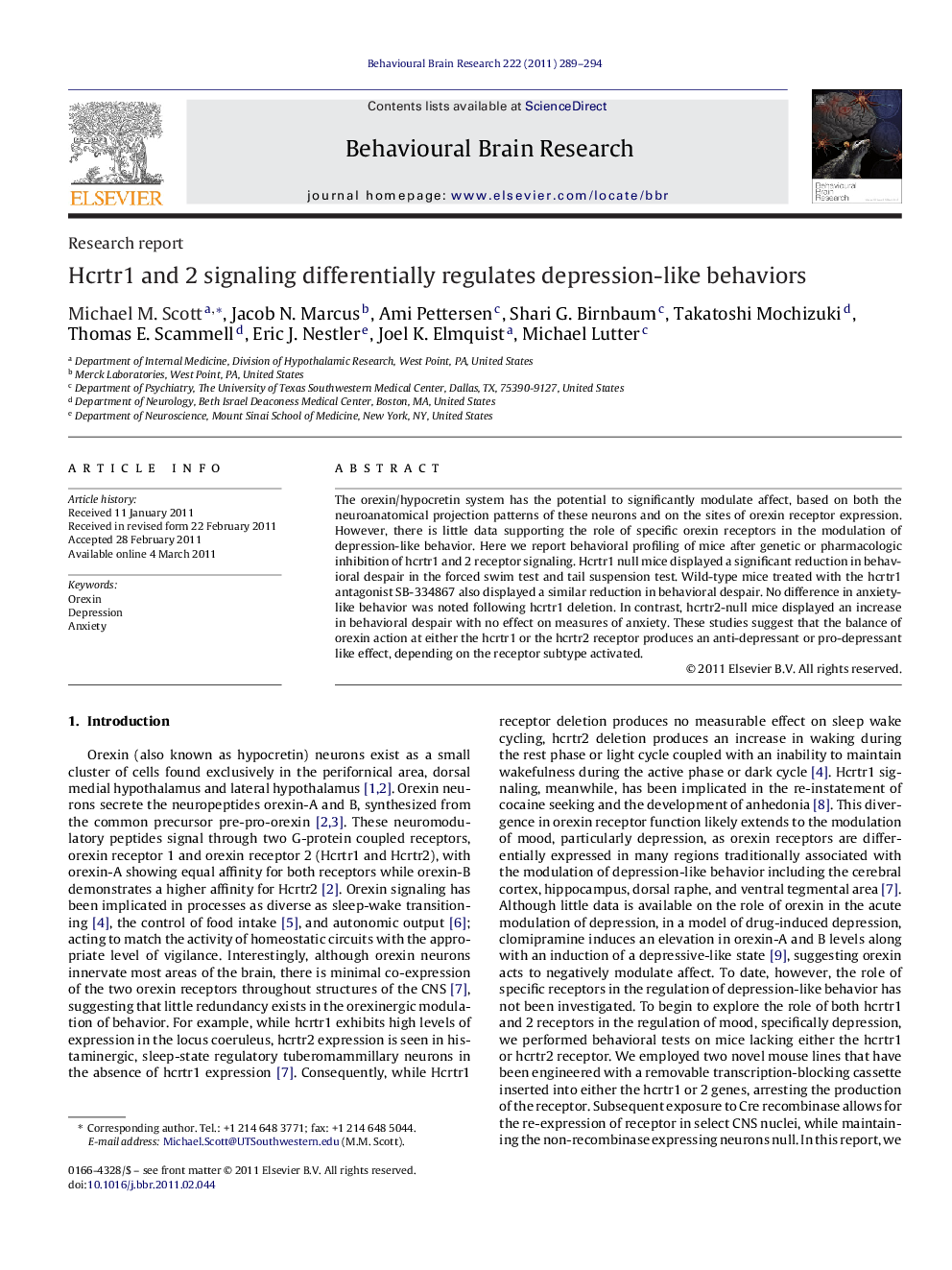| Article ID | Journal | Published Year | Pages | File Type |
|---|---|---|---|---|
| 6259721 | Behavioural Brain Research | 2011 | 6 Pages |
The orexin/hypocretin system has the potential to significantly modulate affect, based on both the neuroanatomical projection patterns of these neurons and on the sites of orexin receptor expression. However, there is little data supporting the role of specific orexin receptors in the modulation of depression-like behavior. Here we report behavioral profiling of mice after genetic or pharmacologic inhibition of hcrtr1 and 2 receptor signaling. Hcrtr1 null mice displayed a significant reduction in behavioral despair in the forced swim test and tail suspension test. Wild-type mice treated with the hcrtr1 antagonist SB-334867 also displayed a similar reduction in behavioral despair. No difference in anxiety-like behavior was noted following hcrtr1 deletion. In contrast, hcrtr2-null mice displayed an increase in behavioral despair with no effect on measures of anxiety. These studies suggest that the balance of orexin action at either the hcrtr1 or the hcrtr2 receptor produces an anti-depressant or pro-depressant like effect, depending on the receptor subtype activated.
► Orexin receptors 1 and 2 differentially modulate depression like behavior. ► Disruption of orexin receptor 1 decreases behavioral despair while disruption of orexin receptor 2 enhances this behavior. ► No effect of orexin receptor deletion was observed in measures of anxiety like behavior or in open field locomotion. ► The novel orexin receptor null mouse lines described in this report will be useful in future studies of orexinergic modulation of behavior.
